INDIAN ARMED FORCES CHIEFS ON
OUR RELENTLESS AND FOCUSED PUBLISHING EFFORTS

SP Guide Publications puts forth a well compiled articulation of issues, pursuits and accomplishments of the Indian Army, over the years

I am confident that SP Guide Publications would continue to inform, inspire and influence.

My compliments to SP Guide Publications for informative and credible reportage on contemporary aerospace issues over the past six decades.
Israelis eager to participate in ‘Make in India’ programme<
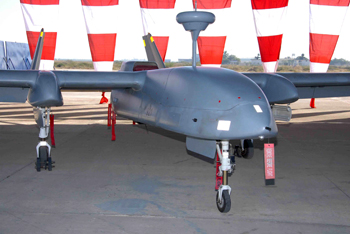
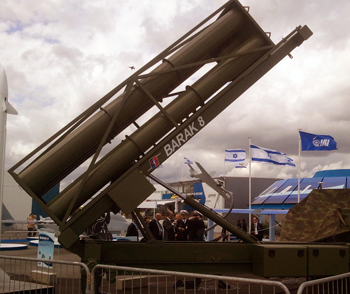
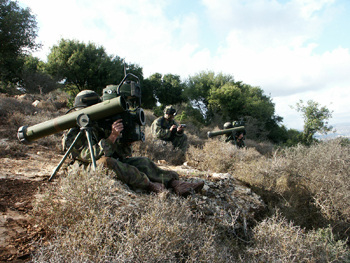
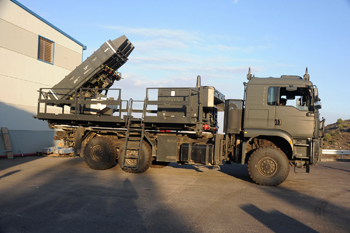
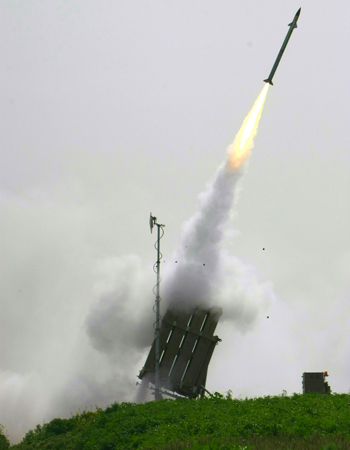
Israel has emerged as India’s second largest supplier of defence hardware, not only because of a special relationship with India, but also because they have done a miracle in the defence sector by mastering the art and science of developing modern weapons systems, which India needed very much at a time when no other country was willing to export to India. However, the tiny country has limited human resources and limited land space to expand its defence manufacturing activities. Since India is a very big customer for them, the Israelis find India as a reliable partner with whom they can develop special defence production partnership. With the National Democratic Alliance led by Narendra Modi coming to power, the government has laid special emphasis on encouraging foreign companies to invest in India under the Make in India programme. Though India has been encouraging foreign investors to choose India as their investment destination, the Modi government has laid special emphasis by calling it as ‘Make In India’ initiative. This has drawn the attention of top Israeli defence manufacturing companies some of whom visited India from September 8 to 10.
The huge Israeli defence delegation comprised of almost all companies, which have earned a name for themselves in the international defence arena. They interacted with India’s leading industry body, the FICCI (Federation of Indian Chambers of Commerce and Industries) to get a first hand understanding of the Prime Minister Modi’s ‘Make In India’ programme. They could not have found a better guide than FICCI, which objectively explained to the Israeli delegation the various pros and cons of the Indian investment environment. There was so much enthusiasm among the Israeli companies to invest in India that over 200 business to business meetings were held in the FICCI premises during their visit. This reflected the commitment of the companies from the two countries towards strengthening the bilateral defence relationship .
The seminar organized by FICCI along with SIBAT, Israeli Ministry of Defence, gave an opportunity for the Israeli companies to understand India’s Make In India programme. The Israeli interest in investing in India was evident from the fact almost all the leading Israeli companies participated in the programme, who were encouraged by the Israeli Ministry of Defence to take a lead in investing in India with the intention of grabbing Indian orders in the defence sector, and simultaneously look for international market.
Interacting with the representatives of Indian and Israeli defence companies , the Deputy Chief of Mission in the Israeli embassy Ms Dana Kursh said that India and Israel should continue to invest in Indo-Israel initiatives and innovations. Over the years, G2G (government to government) ties have matured and given way to B2B meetings which would ensure collaboration between Indian and Israeli companies. She added that now the onus was on the private sector to implement the decisions reached at in the G2G meetings. The Director of SIBAT, Brigadier General Michel Ben Baruch (Retd) commented that Israel shared a relationship with India that goes much beyond the buyer-seller relationship and extends to transfer of technology and joint research and development. He added that Israel was committed to enhance partnership with India in its ‘Make in India’ initiative.
The overall Indian manufacturing today is around US$300 billion, out of which the defence manufacturing forms a minuscule share, though India is one of the top five defence hardware importer from the rest of the world. Hence, the Israeli defence companies have realized India’s potential and do not want to lose the opportunity to other latecomers.
Undoubtedly, the Israeli defence companies have gained a good first hand experience of working as offset partner for its supplies to India. The Israeli Aircraft Industries Vice President and Head of Corporate Offset Organization in India, Joseph Betsalel, claimed that they have accomplished in India the first ever offset programme. The offset amount accounted for India is so high that they have become very important for Israel to implement the programme. They already have US$ one billion offset programmes in hand with India of which they have already implemented about US$ 450 million offset. IAI is a global company and has sales of around US$ 4 billion. IAI is one of the main suppliers of strategic systems to India. They have collaboration with Indian entities like HAL, Bharat Forge, Wipro etc in electronics assemblies, aeronautics etc. They are the systems developer for the Indian Air Force. However, they also complained that maintenance job is not entitled for offset. Betsalel said, “We are fully committed to the ‘Make In India’ programme. We are prepared for direct investment. We are still in the learning process. There are still challenges in India. We are not sure about the time it will take to implement joint ventures in India. It may take three to five years. This is not an easy task. Though the FDI cap was raised to 49 per cent and even more, they are concerned over transfer pricing, Intellectual Property transfer, permits and licenses and taxation issues . Betsalel disclosed that IAI is in the process of looking for partners for UAV missiles, loitering weapons, air defence and radar and communication etc.
Jokingly comparing Indian investment scene to ‘Alice in Wonderland’, the Corporate Offset Manager of Elbit, Israeli company, OriMagal described the Indian Defence Procurement Procedure (DPP) as Alice in DPP wonderland. Reacting to the joke, a FICCI representative said that the Government is committed towards ease of business and expects the new DPP will be most positive towards, IPR and transfer pricing.
According to Melamed, the big challenge is how to make in India. “This slogan has become very popular and the Indian private sector defence market is only growing. But we face problem with quality and the interest rates in India are very high. Another big issue to be tackled is that we have to face the local content challenge. So we are eagerly waiting to see what the next DPP will be. How the new regulation will be. For the benefit of India you have to ease the way and more flexibility is needed. We are facing lot of challenges in running programmes in India. Every fresh tender we see as a challenge. We have to deal with different DPSUs.”
The Israeli delegation was explained that the Indian investment legislation is based on five rules - DPP, Industrial license, FDI, Tax and Import-Export rules. In fact the DPP is the bible of doing business in defence arena, which is revised every two or three years and contains new procedures. Therefore the Israeli investors would have to master the DPP and were told frankly that without understanding the DPP, doing any kind of business will be difficult. They were told that by making India as their production center, they can not only sell to Indian armed forces but also export to the world market. Colonel Bhatia told them Make In India offers Israel to be a co-developer and co-producer of weapon systems.
The Israelis were also told that during the next ten years the Indian armed forces would be acquiring weapon systems worth US$ 250 billion. India needs an action plan for this to be realized. It is worth noting that in the first decade of this century Israel transferred an estimated US$10 billion worth of military equipment and systems to India.
Interacting with the Israelis Jayant Patil, the Executive Vice President of Defence and Aerospace , Larsen and Toubro, said that Israel’s defence technology combined with India’s technocrats could together achieve great milestones. He added that Indo-Israel strategic relationship could go a long way by sharing each other’s experiences. India could learn from some of SIBAT’s successful defence models and replicate them as they have the potential to succeed in India.





